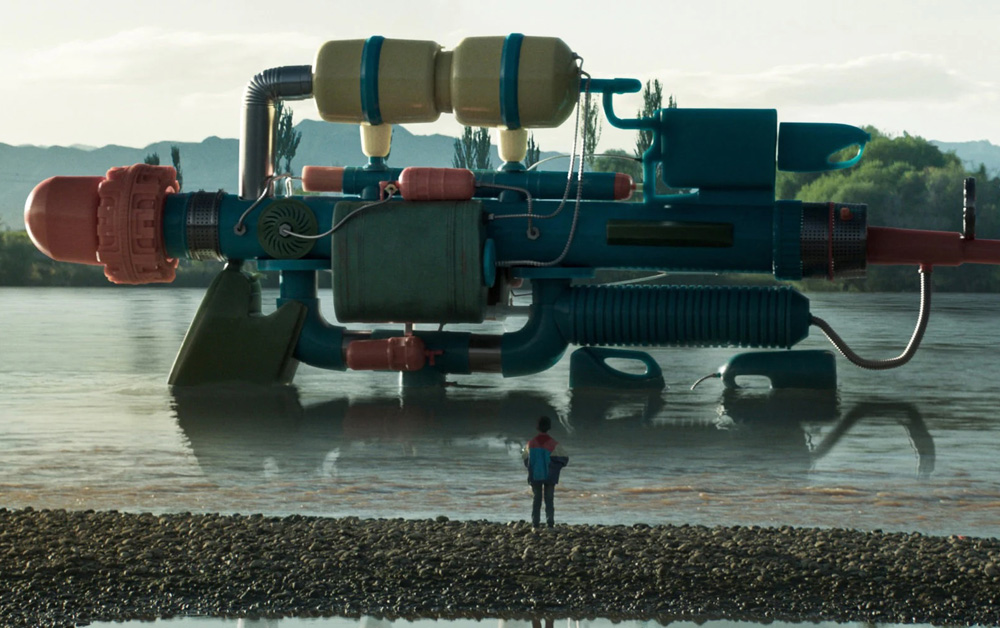Nearly everything is telling the family at the center of “Above the Dust” to leave their home in rural China where much of the village around them is already gone, told that their children will find more suitable schools elsewhere and that prosperity can be found in the cities where the government will provide new housing. Already, Chuan (Zu Feng), the patriarch, spends much of his time there working in construction, while his wife Muyue (Yong Mei) is the one to tend to their son Wo Tu (Ouyang Wenxin) and also her father-in-law (Li Jun), who injured himself digging and looks to pass away any day now, leaving hear to worry about whether Chuan will make it back in time to see his father off in additional to all the entreaties for her to move she has to deal with alone. She doesn’t know why the old man would even be messing around with a shovel at his age, but he confides in Wo Tu before dying that there are heirlooms beneath their home left by his father when promising to watch over the 10-year-old boy from beyond as a ghost.
“Above the Dust” came to Berlinale with both the credibility of “Beijing Bicycle” director Wang Xiaoshuai and a bit of notoriety when the filmmaker notably did not wait for the approval of the Chinese National Film Bureau after submitting it in 2022, making the path towards a broader release surely more difficult. (While I couldn’t know what other edits were demanded by the censorship board, generally ghost stories are frowned upon.) That would be a shame when Wang comes up with a novel way to tell a story of incredible ambition in his latest drama, charting the toll of sudden modernization in China when Wo Tu’s grandfather is able to take him back in time through his dreams to learn of the history of the land they sit upon, ostensibly to reveal what treasure is underneath, but reveal how the erosion of villages throughout the country began.
“How could a kid know about the Great Leap Forward?” Muyue asks Jin, one of the few others that has stuck around in the mountains, when wondering where Wo Tu could’ve heard about the industrialization of China during the early 1960s when at this point he doesn’t even have a school to attend. She’s skeptical about Wo Tu’s dreams, but also intrigued when the family could use some good fortune and her frustrations with the government grow when their claim on the land around the family’s home prevents them from properly burying Chuan’s father and if they do find any heirlooms, they would be legally required to report them to the authorities. Although Jin tells Muyue, “If you keep digging, the house will collapse” after she busies herself with picking up where the grandfather left off when Chuan returns to the city, it starts to look like the opposite when at least she’s holding her ground and as Wo Tu learns any time he drifts off to sleep – and by the extension, the audience, the family has made innumerable sacrifices over the years in the name of national progress, most of which have strained familial ties whether or not it strengthened the country.
The dream conceit can become slightly dizzying at times and when told largely from the perspective of Wo Tu, who also has the time to fantasize about water guns, “Above the Dust” risks being confused being more geared towards a family audience when the Great Leap Forward won’t probably make as much sense to kids as it does for Wo Tu, but the film has enough to hold onto for anyone to understand what is being lost when what’s being built up in cities is coming at the expense of what homes families have created for themselves over generations. Whether or not there is the buried bounty, Wang brings the value of the land to the surface not in terms of its value as real estate, but in all that residents have put into the soil.
“Above the Dust” does not yet have U.S. distribution.




